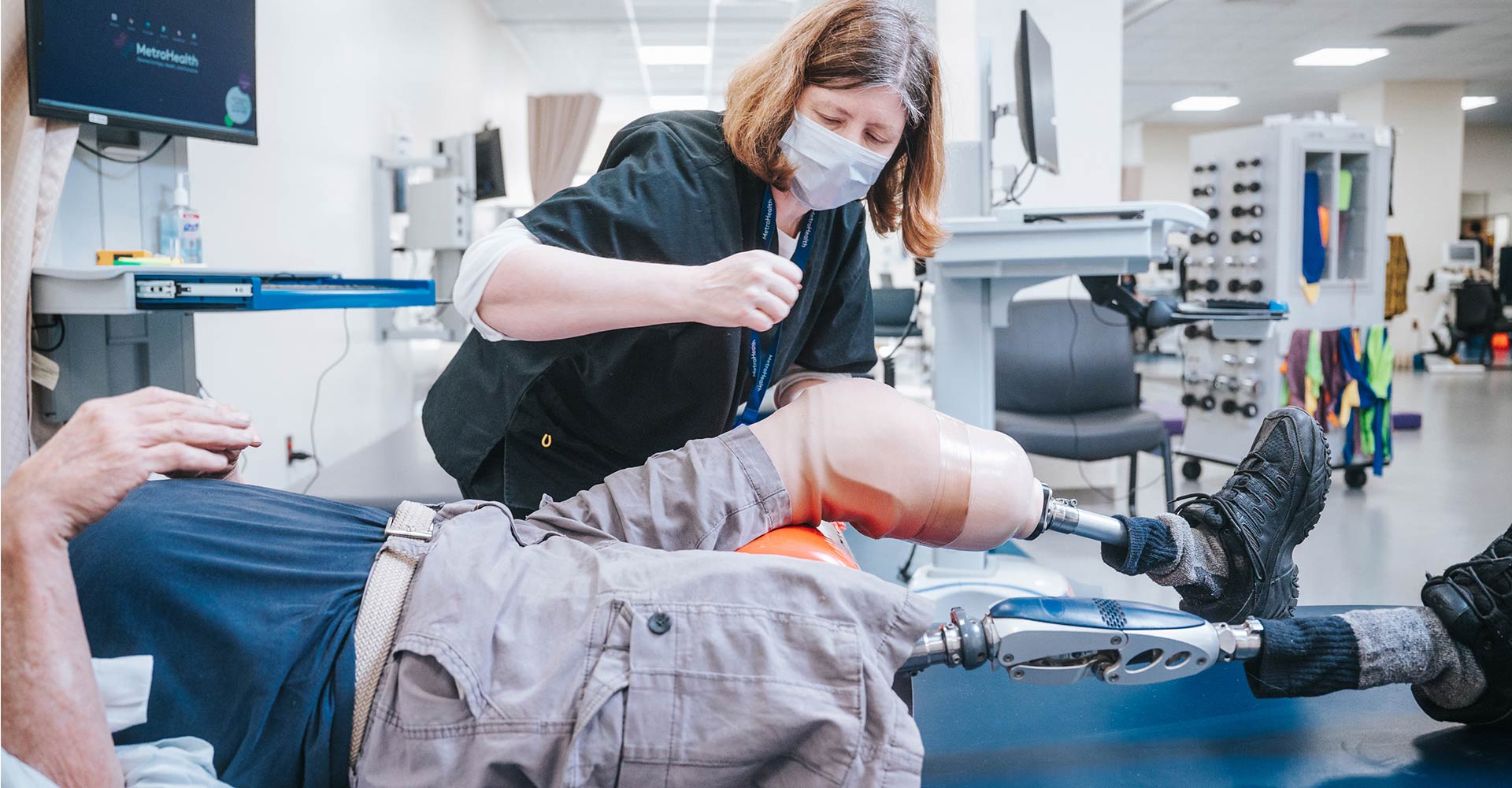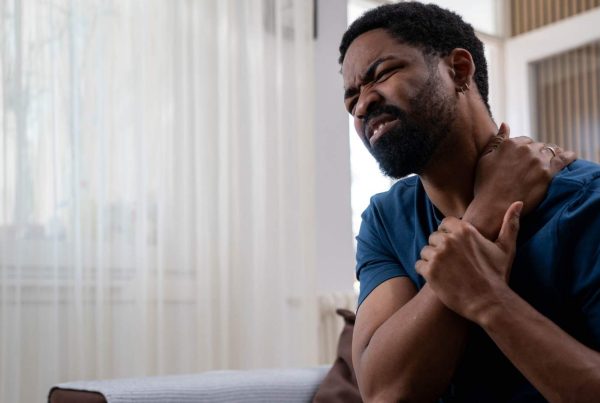Work-related injuries can have a devastating impact—physically, psychologically, and financially. This can affect not only injured workers, but also families, employers, and the community at-large. For more than 35 years, MetroHealth Rehabilitation Institute has been at the forefront of caring for injured workers, helping them navigate through the often challenging workers’ compensation arena.
“We’ve been doing this a long time, and employers and injured workers count on our expert diagnostic care,” says Michael Harris, MD, Director of Industrial Medicine, Department of Physical Medicine and Rehabilitation. “Our multi-disciplined team—doctors, physical therapists, occupational therapists, and social workers—provides cutting-edge technology and therapeutic interventions, medications, therapy, and injections. We also have a rehabilitation psychologist on staff to address emotional health concerns caused by injury or illness.”
A key advantage of MetroHealth is immediate access to a vast array of sub-specialties in-house. This allows MetroHealth to treat even high level injuries expediently, in order ensure successful outcomes, and avoid unnecessary lost time from work.
“It’s better for patient continuity to have a team of specialists all in the same location,” Dr. Harris says.
From common to complex
The team cares for everything from basic strains/sprains to complex trauma. Whether simple or significant, the goal is to return people to work as safely, expediently, and cost-effectively as possible. Therapeutic interventions include:
- Pain management
- Physical and occupational therapy
- Work conditioning
- Vocational rehabilitation
- Psychological counseling
- Ongoing utilization/patient management
Additionally, the program has designated appointment slots daily for any acute cases of injuries, so patients are able to be seen as soon as possible for early intervention.
Work conditioning
When injured workers meet established short- and long-term recovery goals, then they participate in work conditioning. Work conditioning is an individualized, goal-oriented program specifically designed to restore strength, flexibility, and endurance after an injury. At this stage, Dr. Harris explains, job duties or tasks are simulated to ensure employees can safely meet the essential functions of their job—and without concern for re-injury or reoccurrence.
“This helps employees who have been out of work for a significant amount of time who may have experienced functional decline in the injury area or other areas,” says Dr. Harris.
Patients have one job: getting better
All of the rehabilitative support for employees is backed by the program’s workers’ compensation service bureau, which communicates with employers, insurance companies, and case managers while also managing all insurance paperwork and claims.
“Patients need to focus on getting better, and we help ease their burden by managing all of the insurance and employer paperwork,” he explains. “We want patients to focus on recovery—it benefits them and their employers.”
Improving Access to Care
At MetroHealth, we believe that everyone—regardless of circumstances—should have equal access to health care. So when Cuyahoga County Jail contacted the MetroHealth Rehabilitation Institute about support for its inmates, Dr. Harris knew he wanted to be involved.
On a weekly basis, he conducts video visits with inmates dealing with musculoskeletal injuries and ailments. When an inmate needs to see a medical specialist, getting that care can be challenging. This option allows them to provide needed care in a more timely manner.
“A lot of the inmates I see are dealing with previous wounds, injuries, or chronic conditions that are exacerbated by being in an uncomfortable environment,” he explains. “Just like with other patients, our goal is to improve quality of life. We do that with medication, therapy, and offering an attentive ear.”
“This is really just another way to live out our mission at MetroHealth,” says Dr. Harris.











